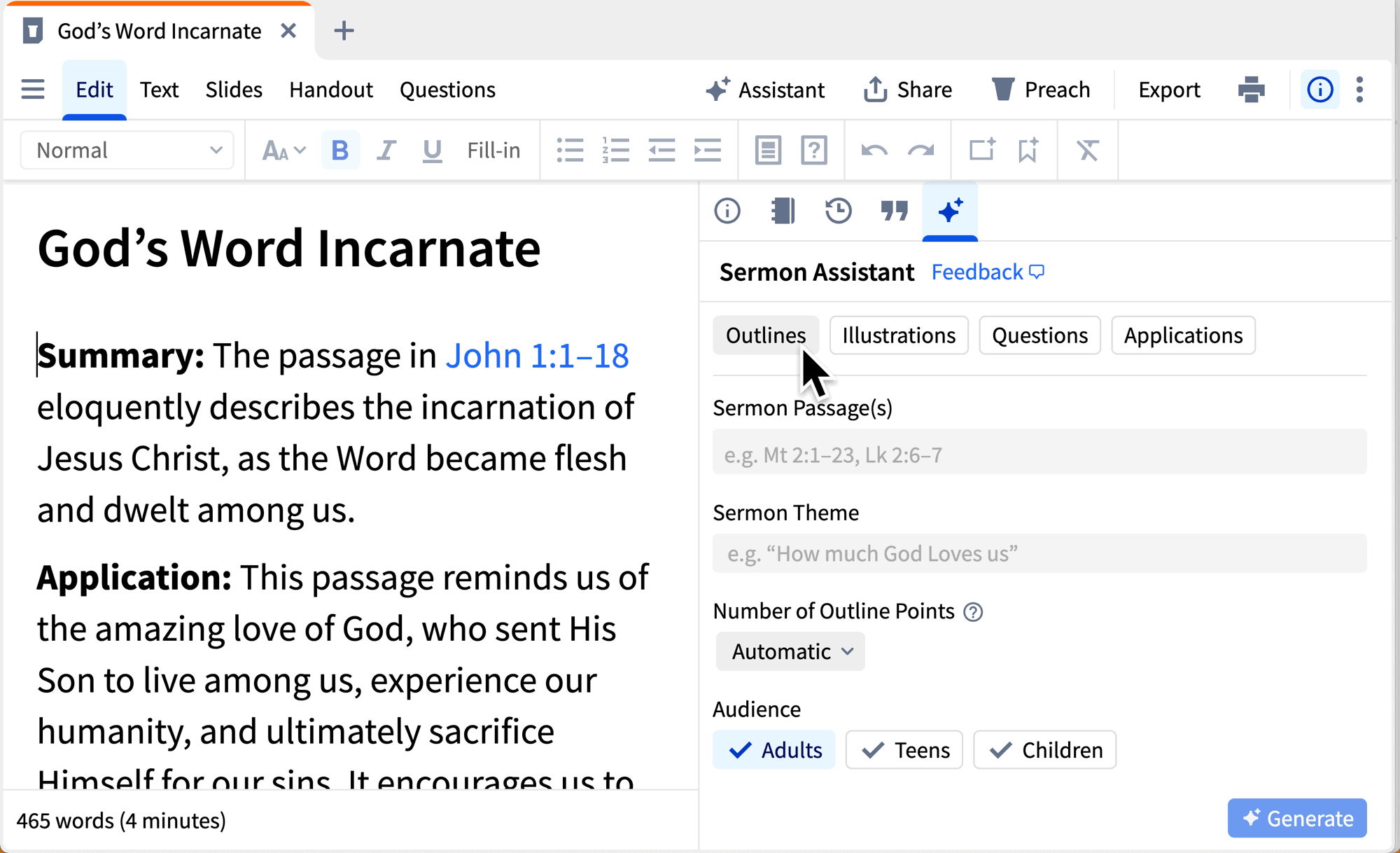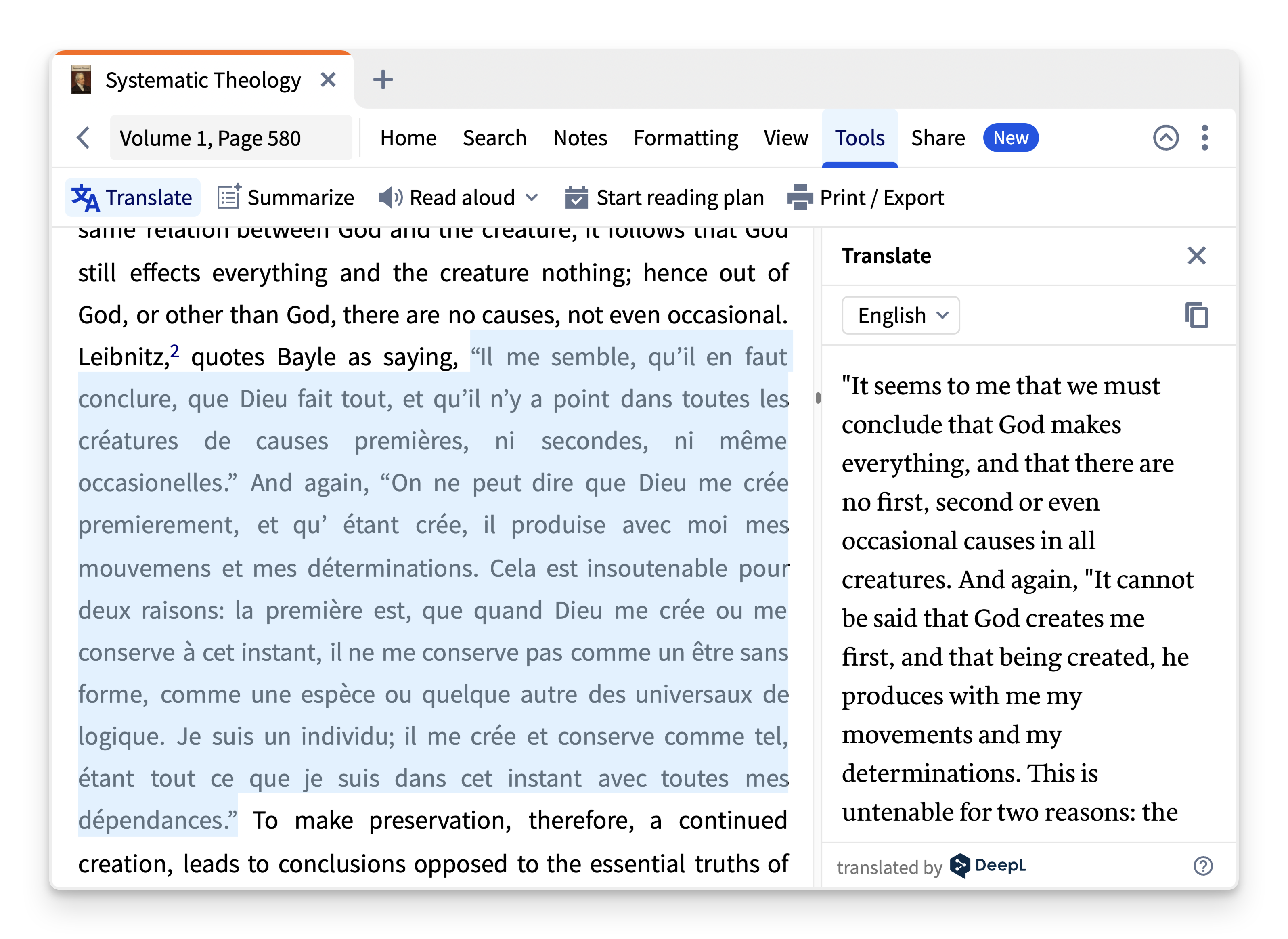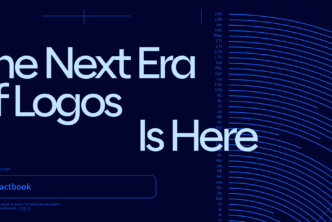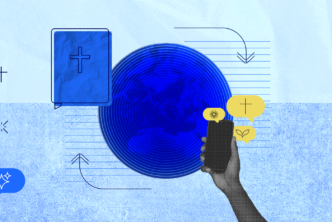When I first read about a large language model called “ChatGPT” from OpenAI, I knew that my life as the dean of the School of Theology at Colorado Christian University had forever changed. I understood that this would be yet another reason for revamping the way we prepare pastors and Christian leaders to serve in local churches. After all, my seminary training never included a course on how to think biblically about critical race theory, same-sex marriage, or how to use artificial intelligence to serve the church. Each of these emerging issues has required pastors to rethink how they navigate daily ministry and has changed the way we train future church leaders.
Twenty-one months have passed since that fateful announcement, and the impact of AI continues to unfold. Like the arrival of the internet and Wikipedia, the advent of machine learning and large language models are a milestone that cannot be ignored by professors and administrators in Christian higher education.
This article is not intended to offer the latest amazing facts of what AI is able to do, because the weekly advances in large language models would make such an article obsolete before publication. We know that people who are living through history cannot write history books in real time. Nevertheless, we do well to step back and think about the place of artificial intelligence in pastoral ministry and Christian higher education. In doing so, my goal in this article is to help Christians to think critically about AI, both encouraging pastors and Christian professors to explore its advantages even while reminding all to be wary of certain of its aspects.
See our entire series of articles providing thoughtful engagement of AI.
Table of contents
The current state of AI
As we survey its current state, first, we must acknowledge that promoters have overhyped AI and will continue to overhype AI for a long time. For example, I am still waiting for flying cars (or even a reliable self-driving taxi), human extinction from rogue AI machines, or the promised personal assistant on my iPhone (asking Siri to set a timer does not count). Also, consumers have not yet agreed to pay the higher prices for AI-powered gadgets and subscription fees for full-access to AI.1
Even so, the Electric Power Research Institute estimates that data centers consumed 4 percent of the electricity generated in the United States in 2022, and this figure is expected to rise to 9 percent by 2030.2 Such an enormous use of power will drive up the energy costs of many other goods and negatively affect the economy long-term.
Already, labor statistics indicate that employment is declining for graphic designers, copy editors, and customer service employees.3 Workers in endangered fields, like taxi drivers and those mentioned above, may want to think about retraining opportunities for a more stable AI future. On the other hand, from my vantage point in the middle of 2024, those who have the most to gain from AI are clearly the tech-savvy people of the screen who work primarily in research, writing, and teaching. In other words, regular users of Logos Bible study platform are precisely the individuals who should be thinking about how to use AI now and how to be ready for future advancements to unfold.
Discover some of the ways Logos is integrating AI in its latest version!
Yet AI language models still produce inaccurate information (“hallucinations”) and confidently deliver misleading content intertwined with helpful information. AI will spawn decades of court cases for copyright infringement of the tone of authors’ and the artists’ style. Military uses of AI for drone swarms are chilling and inevitable. AI’s march into all aspects of life will be unstoppable, just as the smartphone has crept into every crevice over the past seventeen years.
6 suggestions for implementing AI
Though these disturbing problems will take years to resolve, such concerns should not prevent Christian users from taking advantage of the best uses of AI much sooner. To this end, pastors, leaders, and teachers in higher education should consider the following six suggestions for incorporating AI tools today.
1. Use your imagination
The greatest obstacle in the way of using AI to improve lives and promote human flourishing is our own failure of imagination. Even at current levels, AI language models have the capability to accomplish a myriad of menial tasks. Yet this capacity remains largely underutilized. AI does more only if it is prompted to do so.
Some people have already gone all-in with AI despite the exaggerated promises. But the greater problem is that many others have not even started exploring its possibilities, like using AI to produce grading rubrics, suggest a list of conference titles, or generate translation sentences in Koine Greek.
2. Avoid all-or-nothing thinking
Christians need to avoid all-or-nothing thinking with respect to AI.
The case of self-driving cars is a helpful example. The Society of Automotive Engineers has defined levels of driving automation, with Level 5 being full control by the vehicle on any type of road and any weather condition. Unfortunately, snowstorms at night and legal concerns mean that this level might be decades away. Nevertheless, Level 3 cars are now for sale with speed control, lane-assist steering, and situation monitoring. One doesn’t need to avoid automated driving until Level 5 cars become universally available, especially since Level 2 and 3 cars provide cost-effective benefits today.
In the same way, ChatGPT, Gemini, Copilot, and Claude among others have useful AI models available today. Pastors and professors would do well to investigate and incorporate AI even while better language models are being developed and released each month.
3. Beware of the temptations involved
Pastors can miss the opportunity to use AI to automate menial tasks, freeing up precious pastoral time. However, the greatest danger when incorporating AI in pastoral ministry is to look to the machine to do human tasks.
In other words, the last place the pastor should use AI is to compose a sermon. Preparing a sermon is a uniquely human activity inspired by the Holy Spirit designed to serve a specific congregation of people. Sermons not only provide essential spiritual food for the local church, but also sanctify the pastor by inculcating the Bible over a lifetime of study. A machine cannot be used to accomplish such a spiritual and human task.
On the other hand, a pastor should embrace the opportunity to use AI as a research assistant to summarize commentaries on a biblical text, suggest examples and illustrations, and generate slides and backgrounds. Given the transcript of a sermon or a chapter of a book, AI can suggest questions that could be tailored to specific audiences in small group settings.

Get access to AI-empowered Sermon Assistant in the latest version of Logos!
Now is the time for seminary professors to start thinking about how to incorporate AI training in their coursework for pastors in the future. Ethical training will also be needed not only to avoid plagiarism, but also to avoid the spiritual atrophy which happens from relying on a machine rather than wrestling with a biblical text before preaching to a congregation.

4. Professors, take the lead
Ironically, tenured professors should be the biggest users of AI but often are the least inclined to investigate AI language models. Professors are subject matter experts in their fields and are the best at detecting and correcting the occasional hallucinations of an AI.
Though AI is a terrible ghostwriter, it can be an amazing research assistant for discovering and organizing data. Professors should never cut and paste from AI, but having AI suggest an outline or edit a proposed document is faster than most alternatives. Though AI should never be used to issue the final grade of an essay, it is superb at identifying errors in grammar and orthography so a professor can focus on interacting with the content of an argument and the ideas of the student.
An unfortunate reality in this brave new AI world is that professors now need to change how they approach their course assignments. A three-page essay on the life and work of a philosopher is now a two-minute exercise with AI, and studies have shown that essays generated by AI are virtually undetectable to graders.4 ChatGPT apparently is able to include a “watermark” to disclose that an essay has been composed by AI, but so far has been reticent to implement it.5 Educators need to reevaluate all take-home assignments as a method of gauging student learning, and likely more in-class composition and oral examination will be necessary for the foreseeable future.
5. Unleash language translation
One of AI’s greatest areas of opportunities is in translation work for Bibles and other Christian books.
Last semester, my (human) research assistant found an article with an English abstract which seemed relevant to an upcoming academic presentation. The only problem, my assistant explained, was that the article was thirty-seven pages long and written in Korean. Twenty-one months ago this would have been an almost insurmountable problem, but I suggested simply dragging the .pdf file into an AI language model (in this case, Claude) and requesting an English translation. After just fifteen seconds of work, we received a result that, although not perfect, was more than acceptable for our research task. Claude even provided a two-page summary in English for our convenience.

Use Logos’s Auto Translate tool to make use of resources in languages beyond your own!
More specialized tools for computer-assisted human translation are already in use and will unlock untold theological resources for Christians outside of the English-speaking world (and vice versa). Even now Logos has the capability to translate digital works into more languages in less time and at dramatically lower costs than alternative methods.
6. Incorporate AI into travel courses and beyond
Colorado Christian University believes that teaching the Bible becomes especially effective during trips to the lands where biblical events first occurred.
Unfortunately, such trips to biblical lands can be prohibitively expensive and time-consuming for many students. The School of Theology at CCU is pursuing AI-enhanced extended reality courses to provide virtual tours to students at home and even to provide pre-trip touring to enhance the experiences of traveling students. Other opportunities for extended reality experiences include envisioning Moses’s tabernacle and Solomon’s temple to aid student learning more broadly.
Practical ways to start exploring AI
So with these six suggestions in view, what are some practical ways of getting started with AI?
1. Learn the basics of “prompt engineering”
AI returns better results when given more thoughtful prompts. Unlike a mechanical system, AI returns different responses to the same prompt on different days or as part of different conversations.
2. Acquaint yourself with the different language models
Set aside time to sit down with several different AI language models, inputting the same prompt in each (e.g., “What are the basics of prompt engineering?”). Not every AI performs equally well at every task, so it is useful to know the differences between the language model options.
3. Collaborate with colleagues
Ask them, “What are you using AI to do?” and “How is AI saving you time?” Learning from others in similar situations will allow you to expand your portfolio of AI tasks over time while encouraging others to do the same.
Conclusion
Like smartphones, AI will continue to expand into every area of life. It contains both the capacity to promote human flourishing as well as accelerate the atrophy of human thinking over time. The expansion of AI will have both positive and negative effects on human society and individual well-being.
As such, artificial intelligence presents both opportunities and challenges for Christian higher education, pastoral ministry, and the broader church. As we navigate this rapidly evolving landscape, it will be crucial to approach AI with discernment, leveraging its benefits while remaining aware of its limitations and potential pitfalls.
By avoiding all-or-nothing thinking, embracing AI’s potential in areas like language translation and enhanced learning experiences, and being mindful of spiritual and ethical considerations, Christian leaders can harness AI as a powerful new tool for ministry and education. Professors should lead the way in exploring AI’s capabilities, setting an example for responsible use and innovation that will promote human flourishing. We must resist the temptation to replace uniquely human and spiritual tasks with AI-generated content. Nonetheless, let us leverage AI in our ministry by using it to augment our work, freeing up time for deeper spiritual engagement and human connection.
Advance your study of AI and education with these recommended books from Kotter
- Brave New Worlds by Salman Khan
- The AI Classroom: The Ultimate Guide to Artificial Intelligence in Education by Dan Fitzpatrick
- Teaching with AI by Jose Antonio Bowen and C. Edward Watson
- Practical AI Strategies by Leon Furze
- AI For Educators by Matt Miller
Related articles
- Exegetical Crises of Faith: 12 Tips for Struggling Students & Professors
- How to Leverage Logos in Your Classroom
- How One Seminary Offers Accredited & Innovative Education

- Christopher Mims, “The Big AI Question: Are you Ready to Pay for It?,” Wall Street Journal, June 14, 2024. https://www.wsj.com/tech/ai/the-big-ai-question-are-you-ready-to-pay-for-it-534d95e9.
- Jennifer Hiller and Sebastian Herrera, “Tech Industry Wants to Lock Up Nuclear Power for AI,” Wall Street Journal, July 1, 2024. https://www.wsj.com/business/energy-oil/tech-industry-wants-to-lock-up-nuclear-power-for-ai-6cb75316.
- Christopher Mims, “AI Doesn’t Kill Jobs? Tell That to Freelancers,” Wall Street Journal, June 21, 2024. https://www.wsj.com/tech/ai/ai-replace-freelance-jobs-51807bc7.
- Peter Scarfe, et al., “A real-world test of artificial intelligence infiltration of a university examinations system: A ‘Turing Test’ case study,” PLOS One, June 26, 2024. https://journals.plos.org/plosone/article?id=10.1371/journal.pone.0305354.
- Deepa Seetharaman and Matt Barnum, “There’s a Tool to Catch Students Cheating with ChatGPT. OpenAI Hasn’t Released It,” Wall Street Journal, August 4, 2024. https://www.wsj.com/tech/ai/openai-tool-chatgpt-cheating-writing-135b755a.





